In InDesign I was hoping [\l]{4}(?=\s) will find the last four letters of words, but the GREP did not work. I wanted to put it in the header of page as the suffix. Was doing magic with \b and $, nothing worked. And http://regex101.com/r/uQ7xR3/1 does not work in InDesign, because it's php flavour.
Because there are several additional conditions. If the 5th letter is h, then instead of 4 we should take 5 last letters of each word. But we do not take anything separated by an \s, nor do we take ... or anything inside | (like | ā |).
virūpacakṣus
dharmacakṣus
nayacakṣus
sūryacakṣus
divyacakṣus
saṃgrah
āsaṃgrah
upasaṃgrah
pratisaṃgrah
abhisaṃgrah
anusaṃgrah
Update. Let me add more limitations. Not just a "h", but if there are these combinations kh|gh|ch|jh|ṭh|ḍh|th|dh|ph|bh, do not take only last 4, but last 5 letters. Same with ai|au - they should not be split.
General case:
1) From vṛddhāpacāyitva take itva.
Two exclusions:
2) From nakhāli take khāli instead of just hāli, because kh is treated like a single letter in devanagari script. Identically with kh|gh|ch|jh|ṭh|ḍh|th|dh|ph|bh.
From mirikha take rikha instead of just ikha, because kh is treated like a single letter in devanagari script. Identically with kh|gh|ch|jh|ṭh|ḍh|th|dh|ph|bh.
3) From mahahrauḍ take hrauḍ instead of just rauḍ, because au is treated like a single letter in devanagari script, so ai|au is like a single letter.
From ekaikaivat take aivat instead of just ivat, because ai is treated like a single letter in devanagari script, so ai|au is like a single letter.
